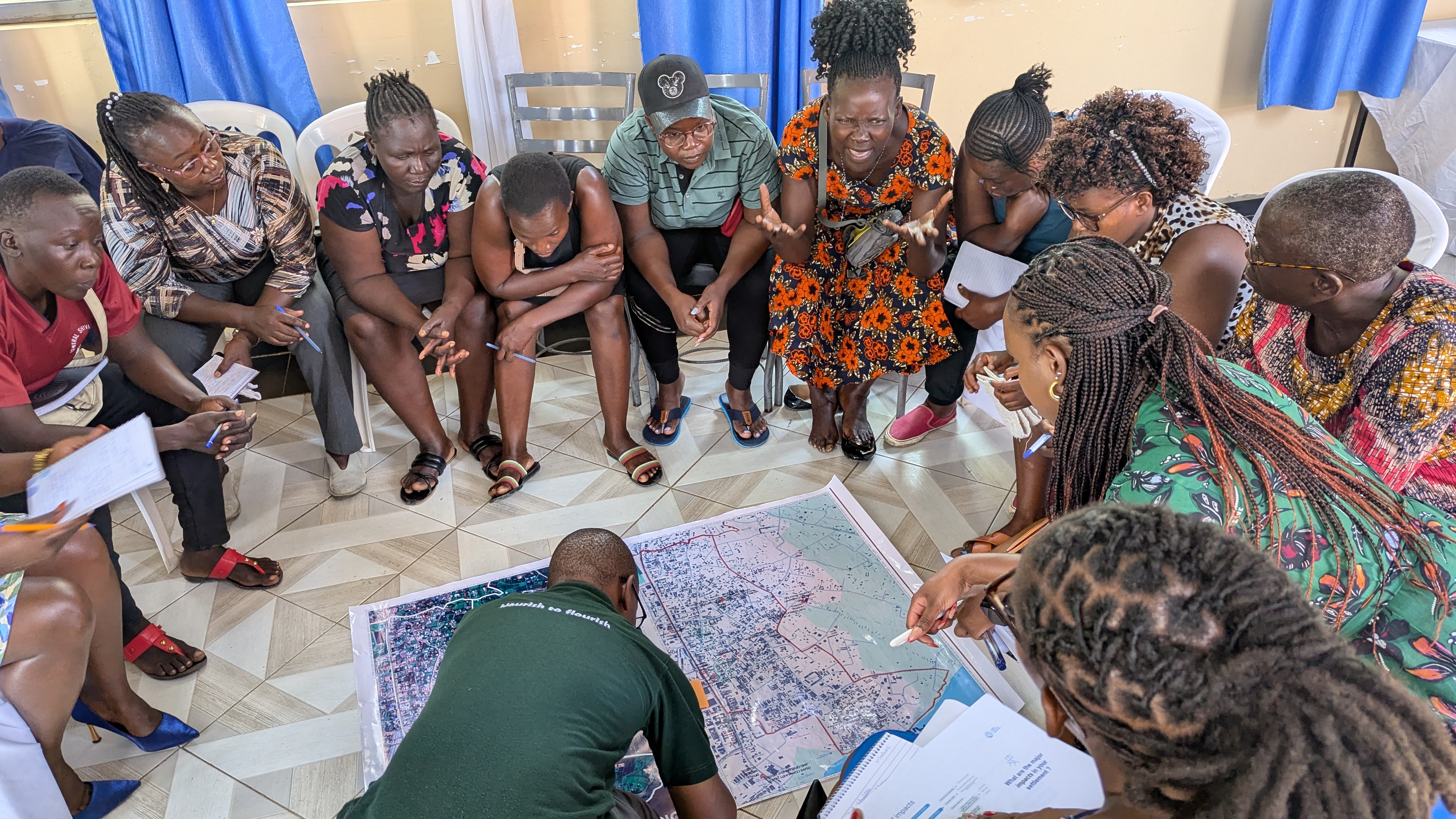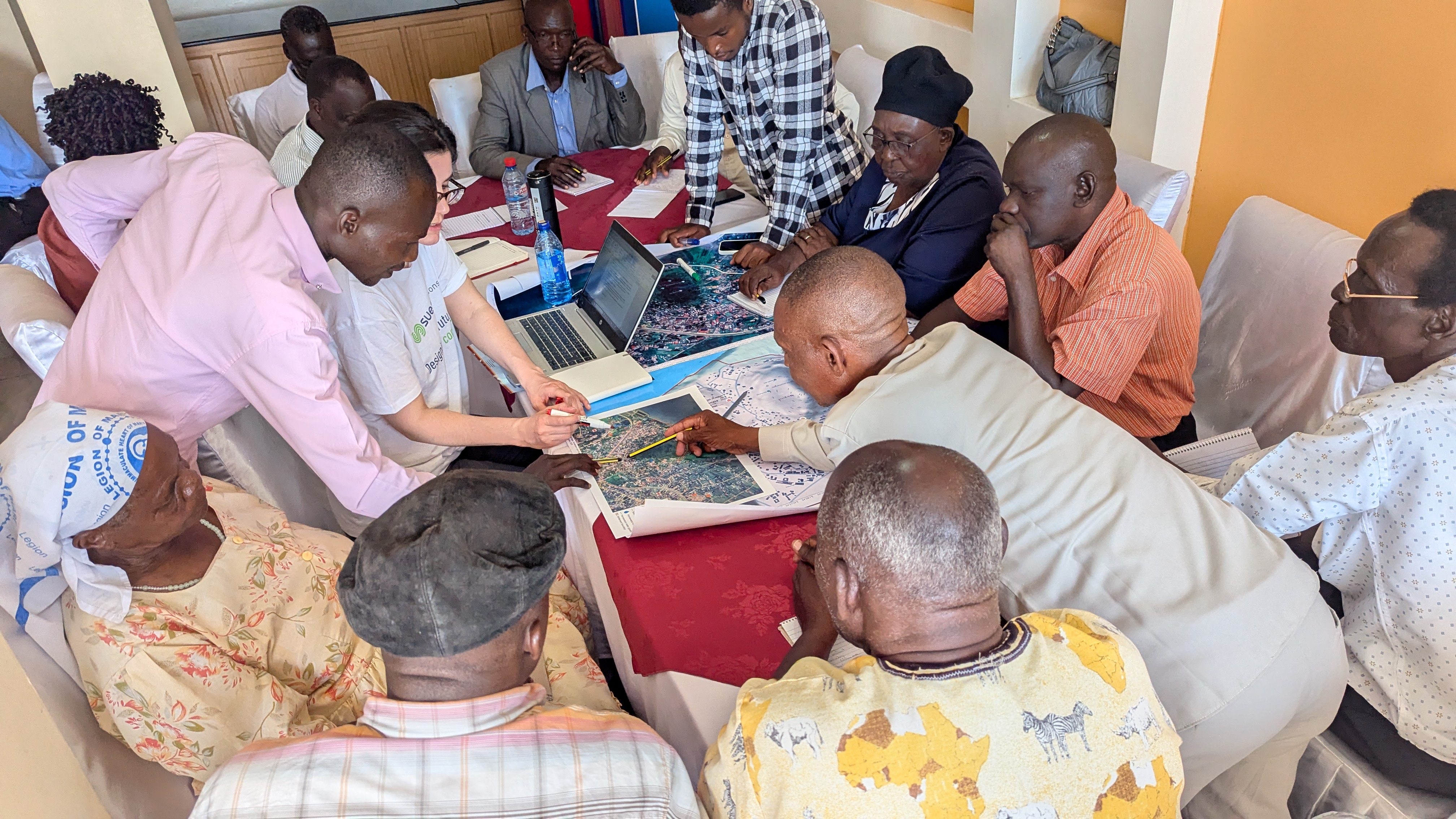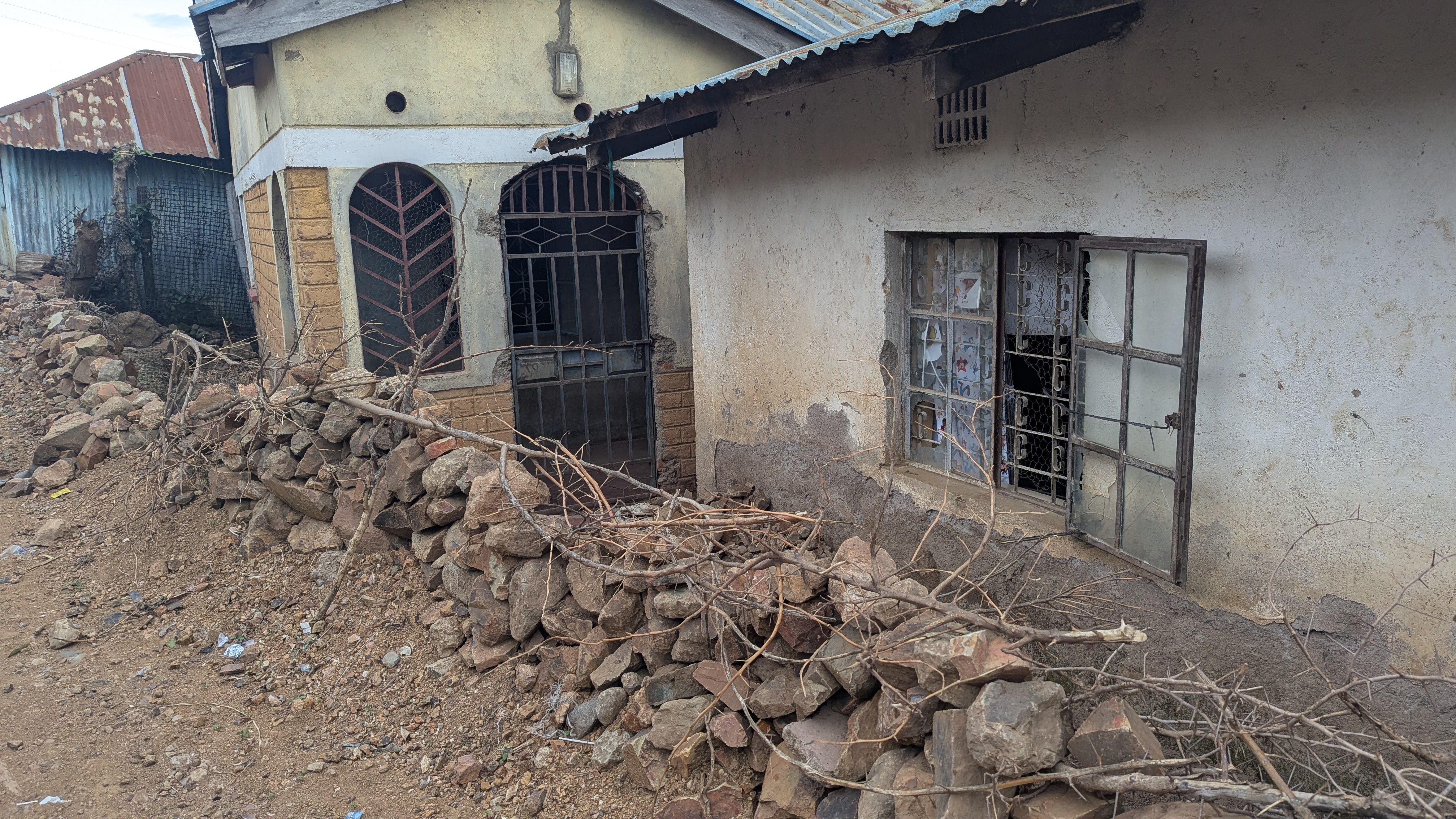
Photo Courtesy: Taylor Black/ GCA
Over 184 representatives of the community, County government, and non-government organizations (NGOs) gathered in Homa Bay from 1-3 April 2024 to validate the results of a community-led mapping and enumeration process. Data and information collected from over 5000 households during the mapping and enumeration process will inform the development of People’s Adaptation Plans to make the community, living on the shores of Lake Victoria in Kenya, more resilient to climate change.
The meetings are part of a joint effort by the Homa Bay County Government, the Global Centre on Adaptation (GCA), the African Development Bank (AfDB), and Akiba Mashinani Trust (AMT) to support residents of informal settlements in the Municipality to develop People’s Adaptation Plans to inform investments under AfDB's Kenya Urban Water Supply and Sanitation Improvement project, and by other funders.
Of the 5918 households in Makongeni, Shauri Yako and Sofia, the three informal settlements in the Municipality, 5082 provided detailed inputs relating to their physical and socio-economic climate vulnerability to inform the situational analysis reports presented during the meeting. A preliminary Rapid Climate Risk Assessment (RCRA) was also presented to community members by GCA’s partner Suez Consulting, to inform community decisions on potential adaptation solutions.
Community members were trained to collect demographic, socioeconomic and infrastructure-related information collected from households during the enumeration exercise, using a standardized geospatial reference framework to organize and analyze spatial data, facilitate effective mapping and visualization of existing land use patterns, infrastructure, and environmental features, and support data integration across planning sectors for evidence-based decision-making. This data and information was analyzed with additional support from the University of Nairobi. A consortium of 28 local NGOs working in different sectors in the County are also supporting the community’s integrated planning efforts, along with Tom Mboya University, whose faculty and students are contributing technical expertise and research support. The opportunity to engage with local communities provides a rich learning experience for the university students.
 Residents groundtruth findings by Suez Consulting on climate threats. Photo courtesy: Taylor Black/ GCA
Residents groundtruth findings by Suez Consulting on climate threats. Photo courtesy: Taylor Black/ GCA
Early results indicate that communities consider land tenure, service delivery, environmental sustainability, and urban growth as key factors impacting climate resilience. Critical gaps in infrastructure including inadequate water supply, poor sanitation and waste management systems along with rapid population growth, and cramped living conditions were identified as key drivers of vulnerability.
The preliminary RCRA identified more intense droughts, episodic rainfall resulting in flash floods, and severe erosion as key climate hazards in the Municipality. Community members flagged the additional hazard of strong winds; highlighted the impact of these hazards on their lives (including water rationing and significant surges in the food prices and other essentials during periods of drought); and supported the identification of vulnerable hotspots within the informal settlements. The price of a 20-liter jerrycan of water, for instance, can go up from KES 5 to KES 40 during periods of drought.
County officials who participated in the meetings, including Director of Housing Teddy Oginga; Pro-Poor Water Officer from the Homa Bay Water and Sanitation Company Javier Pharesh Odero; and County Chief Officer for Governance, Administration and Devolution Isaac Victor Ongiri, said the People’s Adaptation Plans will support the County’s efforts to target the needs of the most vulnerable.
GCA is also investing in local capabilities to leave an institutional legacy. County staff and faculty members from Tom Mboya University are being trained by AMT and Suez Consulting to conduct similar processes in future through learning by doing, and a through a combination of physical and virtual workshops planned in coming months.
 Community efforts to control flooding in Makongeni. Photo courtesy: Taylor Black/ GCA
Community efforts to control flooding in Makongeni. Photo courtesy: Taylor Black/ GCA